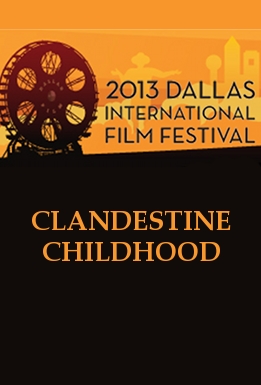There's a special place in my heart for movies about political upheaval in Spanish-speaking countries. Part of that is because I learned a lot about these films in my favorite classes in college. The other part is because it's a window into a world that's different from my own. As recently as a few years ago, there were military coups and assassinations and countries gripped by fear, countries very near the U.S. I've never had to worry that my dad might not come home because he was killed by the president's secret police. If I didn't want to salute the flag, that was my right.
But movies like Clandestine Childhood show us a scary world in all its uncertainty. Teo Gutiérrez Moreno plays Juan, a 12-year-old boy who doesn't understand why he has to use a fake name, why adults are coming blindfolded into his house, why his dad gets so upset that he has a birthday party. What he doesn't know is that his parents are counter-revolutionaries (or, if you want to get technical about it, terrorists).
They fled Argentina after Juan's dad Horacio was almost killed. Now the family is back, this time with a little baby. All the difficulties of growing up are amplified when you can't even be yourself. Falling in love, avoiding a bully, making new friends, all those normal life events occur on top of not knowing when your parents will come home or if armed officers will raid your house.
What keeps Clandestine Childhood from achieving greatness is its lack of commitment. It's much more a coming-of-age story than a spy thriller. And its occasional animated interludes, which are supposed to give the audience a window into Juan's mind and means of escape, come at random intervals. There should have been a few more or none at all.
Still, the cast is excellent, especially Ernesto Alterio as Juan's uncle, who tries to keep spirits up even when the end is near. There's also a nice sense of Juan's attempts to maintain some innocence with his sweet courting of his neighbor MarÃa.
Clandestine Childhood is worth seeking out, even if it proves difficult to find.

